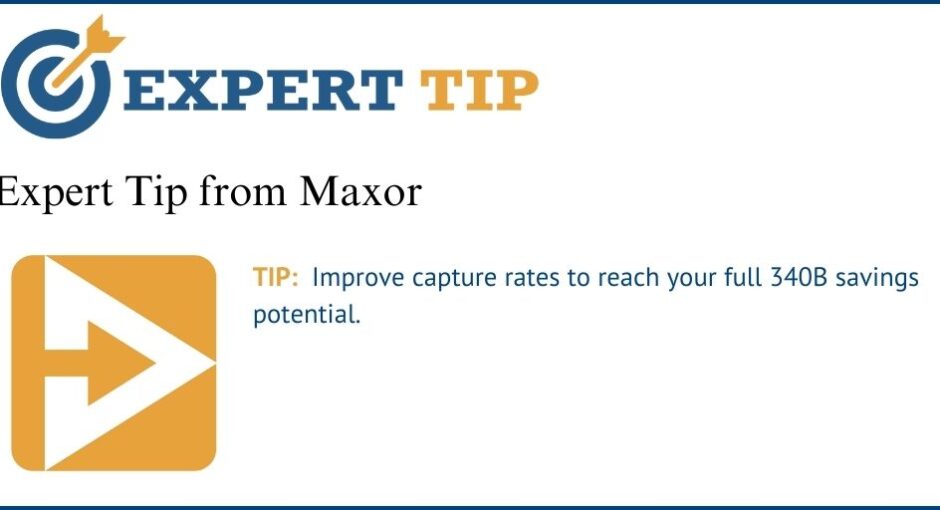
SPONSORED CONTENT

TIP: Take time to focus on these three important fundamentals of 340B program compliance and integrity.
Update Prescriber Panels
Maintaining an accurate prescriber panel helps ensure only eligible prescriptions are captured under the 340B program. Regular updates help prevent compliance risks and optimize program savings.
- Conduct routine reviews of prescriber panels to ensure they include only actively employed or contracted providers.
- Verify that each prescriber meets eligibility requirements defined in your policies and procedures.
Ensure OPAIS Data Accuracy
The Office of Pharmacy Affairs Information System (OPAIS) serves as the official record for covered entities participating in 340B. Any inaccuracies can lead to compliance risks and potential disqualification from the program.
- Perform quarterly audits to verify that all entity locations, child sites, and contract pharmacy relationships are correctly listed in OPAIS.
- Confirm that contact information (Authorizing Official and Primary Contact), addresses, and covered entity details are accurate and up to date.
- Ensure your most recent Medicare Cost Report (MCR) is filed with CMS and sent to HRSA.
Review Policies and Procedures
Keeping policies and procedures current is essential for ensuring staff compliance and preparing for HRSA audits.
- Review and update policies at least annually.
- Ensure that policies cover key compliance areas, including patient eligibility, inventory management, duplicate discount prevention, and diversion mitigation.
- Apexus has policy and procedure templates that can be customized – you can also use them as a guide to compare with yours.
A strong 340B program starts with the basics. By proactively managing these areas, your organization can strengthen its 340B program compliance and performance.

Lori Schilling, Regional Manager at SunRx, can be reached at lschilling@sunrx.com


SPONSORED CONTENT

TIP: Master manufacturer refund challenges with actionable steps.
Managing manufacturer refunds in the 340B Drug Pricing Program can be complex, but with the right strategies, you can streamline the process and ensure compliance. Here are some tips to help you navigate common challenges:
- Allocate Resources Efficiently: When dealing with multiple manufacturers, determine whether an individual or a team will be managing the workload.
- Prepare Communications: Establish your good-faith process to resolve issues with manufacturers, including the communication protocol, self-disclosure letters, and repayment calculations. Resources such as the PVP Self-Disclosure to HRSA and Manufacturer Template are helpful when developing communications.
- Validate Historical Pricing: Ensure accurate refund calculations by validating historical drug pricing using resources such as your wholesaler or the Historical Purchase Report within the PVP secure website.
- Identify Manufacturer Contacts: Use resources like 340B OPAIS and Medicaid.gov to find necessary information.
- Streamline Payments: Processing multiple check/ACH payments can be cumbersome. Implement a system to manage these transactions efficiently.
- Use Apexus Experts: Take advantage of the Apexus Covered Entity Refund Service (CRS). CRS brings the expertise of Apexus in 340B compliance, analysis, project management, and reporting to standardize refunds. Streamline the process of refund calculation, documentation, and resolution.
By addressing these challenges proactively, you can enhance the efficiency and accuracy of your 340B program’s refund process. Regularly review and adjust your strategies to ensure ongoing compliance and optimization.
To learn more about the Covered Entity Refund Service, schedule a meeting with one of our experts today.

Chad Johnson, PharmD, MBA, 340B ACE, is Associate Principal, Covered Entity Refund Service at Apexus and can be reached at chad.johnson@apexus.com
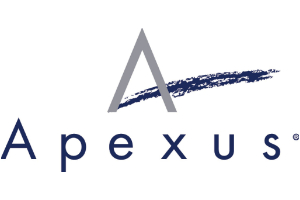

SPONSORED CONTENT

TIP: Use AI to optimize your health system’s 340B program.
Artificial intelligence (AI) is transforming healthcare, offering innovative ways to enhance operations, improve outcomes, and reduce inefficiencies. For health systems managing a 340B program, AI presents a unique opportunity to streamline processes, ensure compliance, and optimize savings. However, successful implementation requires a strategic and tailored approach, particularly when incorporating entity-owned pharmacies, pharmacy services partners, and contract pharmacy optimization.
- Identify Key Challenges and Opportunities: Begin by assessing specific pain points within your 340B program.
- Partner with Experts: Pharmacy services partners can play a crucial role in implementing AI by providing expertise, infrastructure, and access to advanced tools.
- Optimize Contract Pharmacy Arrangements: Contract pharmacy networks can be complex, but AI offers tools to maximize their potential.
- Implement Thoughtfully: Consider starting with a pilot project targeting a well-defined challenge.
- Measure and Adjust: Regularly assess its performance against key metrics, such as compliance rates, error reductions, and financial outcomes.
By leveraging AI strategically, health systems can enhance the efficiency and impact of their 340B programs. From optimizing entity-owned and contract pharmacies to collaborating with pharmacy services partners, the right AI tools can drive measurable improvements in compliance, savings, and operational performance. Thoughtful implementation and continuous evaluation will ensure these technologies deliver long-term value.
For more details about using AI to optimize your 340B program, read our blog.

William Riley, VP Commercial Analytics at Maxor can be reached at wariley@maxor.com
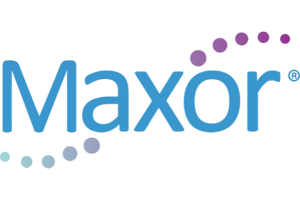

SPONSORED CONTENT

TIP: Covered entities must protect their 340B programs from manufacturers attempting to reduce savings and eligibility.
Here are four steps you can take to protect yourself.
- Strengthen data management practices.
Ensure accurate tracking of 340B purchases and maintain comprehensive records of drug utilization, particularly for contract pharmacies. This not only helps defend against manufacturer audits but also supports compliance, protecting your program from potential clawbacks. - Optimize contract pharmacy arrangements.
Regularly review your agreements with contract pharmacies to maximize savings while minimizing risk. Negotiate clear terms that safeguard your margins, especially given potential pricing shifts from manufacturers. - Diversify pharmaceutical procurement strategies.
Avoid over-reliance on specific drugs from manufacturers that are limiting 340B participation. Seek alternative sources when possible or explore therapeutic options that provide better savings without compromising patient care. Strengthen your in-house 340B capabilities to maximize savings and reduce vulnerabilities. - Engage in advocacy efforts.
Stay informed about industry trends and regulatory changes. Collaborate with trade groups, legal advisors, and 340B experts to navigate emerging manufacturer pressures and advocate for policies that protect the program’s integrity.
By implementing these strategies, 340B covered entities can better navigate the evolving landscape and safeguard their savings amid increasing manufacturer pressures.

William Riley, VP Commercial Analytics at Maxor can be reached at wariley@maxor.com
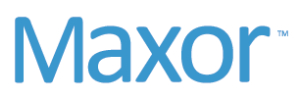

SPONSORED CONTENT

TIP: Understand your patient population and workflows to get the most out of 340B.
To maximize your 340B program’s benefits, it is important to understand your patient population and the workflows within your organization and pharmacy. Key to a successful 340B implementation is having a knowledgeable team that can accurately interpret data, particularly in areas with unique workflows. Ensure you know where patient data is stored, especially if you use multiple EMR systems, and understand your data volumes—how many patients you see daily and how many medications are dispensed. Additionally, have a clear process for managing reoccurring patients.
By focusing on these areas, you can optimize your 340B program and maintain compliance.

Adam Koptowsky is Vice President, Implementation Services at The Craneware Group. He can be reached at akoptowsky@craneware.com
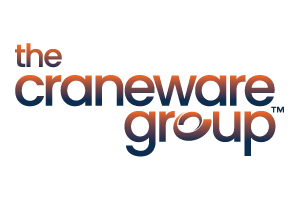

SPONSORED CONTENT

TIP: Maintain an accurate and comprehensive provider list to maximize 340B program effectiveness and compliance.
An outdated or incomplete provider list can severely undermine your 340B program’s performance and compliance. Without an accurate roster, your organization risks missing eligible claims, leading to significant revenue loss and potential audit issues. Many 340B claim capture systems rely heavily on provider data to identify eligible prescriptions – if a provider isn’t properly listed, their 340B-eligible prescriptions may go unrecognized, leaving potential savings on the table.
When compiling and updating your provider list, consider multiple sources to ensure completeness. This may include your credentialing system, human resources records, state licensing boards, and periodic surveys of your clinics and departments. Don’t forget to include all eligible provider types, such as physicians, nurse practitioners, physician assistants, and other prescribers who may be working within your 340B-eligible areas. Regular review and reconciliation of these sources can help catch discrepancies and ensure no eligible providers are overlooked. By investing time in maintaining a robust provider list, you’ll maximize your 340B program’s capture rate and minimize compliance risks.

Anthony Velasquez, Chief Product Officer at PharmaForce, can be reached at avelasquez@thepharmaforce.com
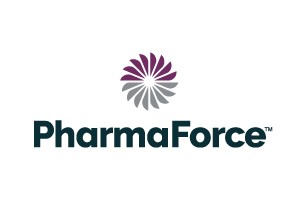

SPONSORED CONTENT

TIP: Build your 340B Rolodex to make your 340B experience easier to navigate.
Throughout any 340B stakeholder’s journey within the program, knowing what resources are available to you will make your 340B experience easier to navigate. Consider these ideas as you build your 340B network:
- As a covered entity (CE), the companies that are helping your 340B program operate will have points of contact you can leverage. Wholesalers and third-party administrators often employ some level of account management. Reach out to see if a dedicated resource has been assigned to your CE.
- Membership with 340B Health or other 340B trade groups include technical assistance for their members. Apexus Answers is available to all and offers prompt replies to questions. These resources are valuable at offering perspectives to challenges facing CEs.
- Attending 340B specific events such as roundtables, conferences, Apexus Universities, or vendor/customer forums is a great way to meet colleagues that serve patients and have challenges very similar to yours.
- Stay on top of 340B developments. 340B is a dynamic program with constant changes. Whether it is manufacturer requirements, regulatory or policy changes, 340B Report and other news sources are essential for effective program oversight.
- Once you identify your resources, establish a routine cadence with each so that you can stay in touch. While challenges may be limited and infrequent, it is nice knowing who to talk to and where to turn if you have a situation that requires guidance. The 340B industry is known to be supportive across the various segments.
If you want to practice networking or want your first contact for your 340B Rolodex, feel free to start with myself! I’m Justin Ott, I’ve been in the 340B space for over a dozen years and firmly believe you can never have enough contacts. Feel free to send me a message!

Justin Ott is Principal, Account Management, at AuthorityRx. He can be reached at jott@authorityrx.com


SPONSORED CONTENT

TIP: Monitoring and maintaining an active patient listing is imperative for 340B compliance.
Monitoring and maintaining an active patient listing (APL) for all patients whose prescriptions qualify as eligible under the 340B program is imperative. This APL should be updated daily and maintained through the electronic medical record system. The entity’s 340B policy should specify the time period during which a patient is deemed active based on their last visit with a covered service provider and scope of service.
The APL should be reviewed in consideration of changes in providers, covered services, and patient termination. For example, if a provider leaves the 340B entity, all affected patients with current monthly prescriptions should be reassessed for eligibility depending on transfer of care to a new provider. Managing the APL can be arduous and time consuming if technology is not leveraged to manage maintenance and to highlight potential exceptions. Speaking with a reputable 340B service provider can help you streamline this process and minimize risk.

Courtney McFarland, Partner at AAFCPAs may be reached at cmcfarland@aafcpa.com
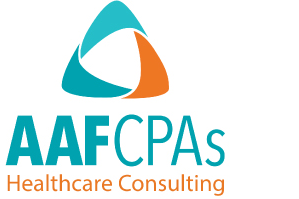

SPONSORED CONTENT

TIP: Enhance your 340B program efficiency through collaborative review and impact analysis.
Asking your TPA for detailed impact reports on any proposed changes to your 340B program can provide valuable insights into your program, including financial performance, compliance risks, and operational efficiency. Understanding the impact of these changes can equip your organization to make informed decisions and proactively adjust your strategies to mitigate risks and maximize savings opportunities.
In addition to TPA impact reports, conducting internal analyses on any changes or updates to the program can provide further insights. Examining the financial and operational impacts of new regulatory requirements or shifts in patient demographics allows your organization to proactively adjust strategies. This can lead to more accurate budgeting, better resource allocation, and improved patient care outcomes. Utilizing data analytics tools provided by your TPA can help you automate these analyses, making it easier to track key performance indicators and make data-driven decisions.
Ultimately, the integration of collaborative review and impact analysis, along with leveraging TPA expertise, can lead to sustained improvements in efficiency, compliance, and overall program effectiveness. By fostering a culture of continuous improvement and leveraging the expertise of your TPA, your organization can maximize the benefits of the 340B program while ensuring compliance.

Alicia Robinson, implementation & key account manager at Cervey, can be reached at arobinson@cervey.com


SPONSORED CONTENT

TIP: To avoid unnecessary audit findings, it is critically important to review OPAIS data regularly.
HRSA audit findings continue to prove that little things can get you! In 340B Report’s March 2024 article, several of the most common “termination causes” can be avoided with regularly scheduled review practices. Most teams review OPAIS annually during registration periods; however, it is easy to overlook items.
An “Incorrect 340B OPAIS record” finding can encompass multiple things. Contract pharmacy address variations due to DEA adjustments can occur without any notification to the covered entity. Teams should review addresses very carefully to ensure nothing has changed. Even small changes could require an amendment to the existing agreement depending on organizational policies and procedures.
Another common occurrence is contract pharmacies that get listed in OPAIS but do not have an active agreement in place. 340B teams need to ensure they have a specific process for contract pharmacy agreement approval and OPAIS inclusion. As a side note, another common miss we see in our work is ensuring a counter-signed agreement is on file.
“Inaccurate or incomplete information on the HRSA Medicaid Exclusion File” is another common finding. Tracking NPI and Medicaid numbers and comparing that data with the OPAIS record is extremely important for 340B teams. Often, that data will also need to be reviewed with the organization’s billing department regularly. Issues in this area could reveal duplicate discounts and, thus, paybacks, which are never welcome.
For teams responsible for 340B compliance looking to automate these processes, there are software solutions to assist. Sectyr’s 340B program management software, SectyrHub 340B, can address several of these problem areas with automated alerts when there are discrepancies between OPAIS and current documentation.

Craig Frost is president and COO at Sectyr, LLC. He can be reached at Craig.Frost@sectyr.com
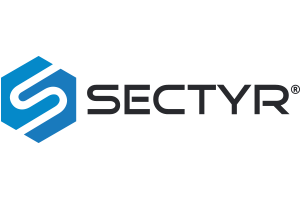
*Sign up for news summaries and alerts from 340B Report



